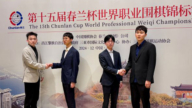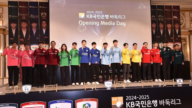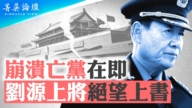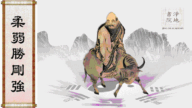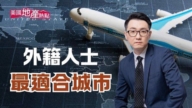【新唐人2011年9月15日讯】俄罗斯最近举办了一场体育研讨会。与会人士谈到,中国近年来在国际大赛上摘金夺银,是因为获得了前苏联的体育经验。在此之前,评论人士指出,中国沿袭了纳粹德国与前苏联的举国体制,这种“金牌体育”已经背叛体育精神,成为中共对外装点形象,对内愚民的统治手段。
这场名为“俄罗斯——体育强国”的全俄体育论坛,是在俄罗斯莫尔多维亚共和国首府萨兰斯克市举行的。会上,云集了俄罗斯众多体育精英。
《美国之音》报导,一名来自西伯利亚雅库特的体育学院院长说,中国继承了前苏联体育机制,这使中国运动员在比赛中取得好成绩。
中国前国家篮球队队员陈凯:“中国的整个体育制度是从苏联搬过来的,这个很清楚。这个事情在50年代就已经形成了,这个制度,这个所谓的举国体制,我不认为它是举国体制,它是举党体制。这种举党体制的社会,一直在基点上都是一样的,跟以前的苏联都是一样的。”
2008年北京奥运,中国金牌数首次超过美国,成为世界第一。2010年广州亚运和2011年刚刚落幕的深圳大运会,中国体育代表团更是在金牌总数上远远领先。
不过这些金牌的背后,是政府主导下的巨大资源投入。中国备战雅典奥运会,花费200多亿元,最后收获32枚金牌,每一枚金牌的背后是近7亿元的巨额投入,堪称世界上最贵的金牌。而这7亿元国民的血汗钱,可以建造3500所希望小学。
中国前国家篮球队队员陈凯认为,中国的体育机制与苏联一样,都是为了共产党统治的稳固而设立的,运动员只是一种工具。
陈凯:“他整个人的利益是不能得到保证的,因为在中国没有这种保险制度。在美国NBA,谈完条件签了合同以后,你的整个利益得到保证。在中国没有这个东西呀,没有说运动员跟政府签合同的事情啊。在中国,政府是你的主人,你是政府的奴隶呀!它不给你签什么合同,你要受伤以后,你就下去了,没有什么保证。”
近年来,中国也引入了国外的联赛制度,是否意味着这种“举国体制”会有所改变呢?
陈凯结合八一队的情况谈了他的看法。
陈凯:“等于以前是,直接从政府拿钱的军队单位的话,现在等于转一个弯,骗人一样,从企事业拿钱,企事业的钱也是公家的呀。表面看起来好像是,这个不是军费直接拨给八一队的,就等于好像有些改革,根本实质上是没有改革的。”
陈凯还谈到,中国和美国的篮球运动根本上是不同的,美国是商业化模式,整个制度是根据运动来设立的。
陈凯:“在中国,运动是根据制度而设立的,这就麻烦了。所以这个基点不变,不要讲在中国有什么改变,不可能改变,只要共产党在,不可能改变。”
旅美学者薛涌认为,“举国体制”是和整个社会的效益相背离的,举国体制越发达,国民资源被消耗得越多,对整个社会、国民的损害越大,全民体育越难以实现。
新唐人记者陈汉、李谦、黎安安采访报导。
China’s Gold Medal Sports System
Russia recently held a sports forum. The attendees
believed that the reason for China’s winning gold medals
in recent years, is because of taking over
former Soviet Union’s (SU) sports practices.
Before this meeting, commentators had pointed out that
China’s “gold-medal sports” followed the nation system
of former Soviet Union and Nazi Germany.
But such a practice had already betrayed the spirit of sport,
becoming a means of Chinese Communist Party (CCP)
to whitewash its image and fool the Chinese people.
The Sports Forum “Russia – Country of Sports” was held
in Saransk city, gathering a number of Russia’s sports elites.
According to Voice of America’s report,
a Sports College’s president in Siberia’s Yakutia said
that China’s sports system inherited practices
from the former Soviet Union,
which made the Chinese athletes
achieve good results in the games.
Chen Kai (former player, China’s national basketball team):
“China’s entire athletic system is copied from the SU.
This is an obvious fact. Back in 1950s,
such a system was already operating in China.
But I don’t think it is a nation system, to be precise,
this is a CCP system.
It was established on the same basis as China’s current
society. The same system as that of former Soviet Union. ”
In 2008 Beijing Olympic Games, the number of gold medals
won by Chinese athletes surpassed those of the U.S.,
becoming the No. 1 in the world for the first time.
In 2010 Guangzhou Asian Games and 2011 Universiade
that just ended in Shenzhen, the Chinese team was
far ahead of other countries in the gold medals tally.
However, behind these gold medals are investments
of huge resources dominated by the CCP authorities.
For the Athens Olympic Games, the CCP authorities
invested over RMB20 billion to win 32 gold medals.
Behind each gold medal are investments of nearly
RMB0.7 billion, the world’s most expensive gold medals. RMB0.7 billion can build 3,500 schools.
Chen Kai believes that the athletic system in China
is the same as that of the former Soviet Union.
It was established for the CCP’s stable ruling.
For the CCP, an athlete is nothing but a tool.
Chen Kai: “Athlete’s personal benefits can’t be secured,
for there’s no such a kind of insurance system in China.
In America’s NBA for example, after signing the contract,
the athlete’s benefits can be secured.
In China, there is no such a thing like signing a contract
with the government. In reality, the government
is your master, and you are its slave. If you happen to get
injured, then you’ll be disposed of, there is no security.”
Recently China introduced the league system from the West.
Does this mean its national sports’ system will change?
Chen Kai: “Previously, the military units acquired funds
directly from the government, now they made it deceitful,
so to look like they get money from enterprises. It looks
like the financing does not come from the military
like a kind of a reform, but fundamentally,
there’s no reform at all.”
Chen Kai commented that the basketball sport in China
is fundamentally different from that in the U.S.
The cage game in the U.S. is operated on commercial mode,
the system is entirely set up based on the game itself.
Chen Kai: “In China, the sport is set up based on the political
system. This brings troubles then.
So, if this basis cannot be changed, don’t talk about
any change in China.
As long as the CCP exists in China,
no changes can be made at all.”
Xue Yong, a scholar living in the U.S., believes that
the national system is contrary to the social benefits.
The more developed the national system is, the more
national resources it will consume, the greater the damage
will be to the entire society and civilians, and it will be
harder to achieve national civilian’s sports in China.
NTD reporters Chen Han, Li Qian and Li Anan



